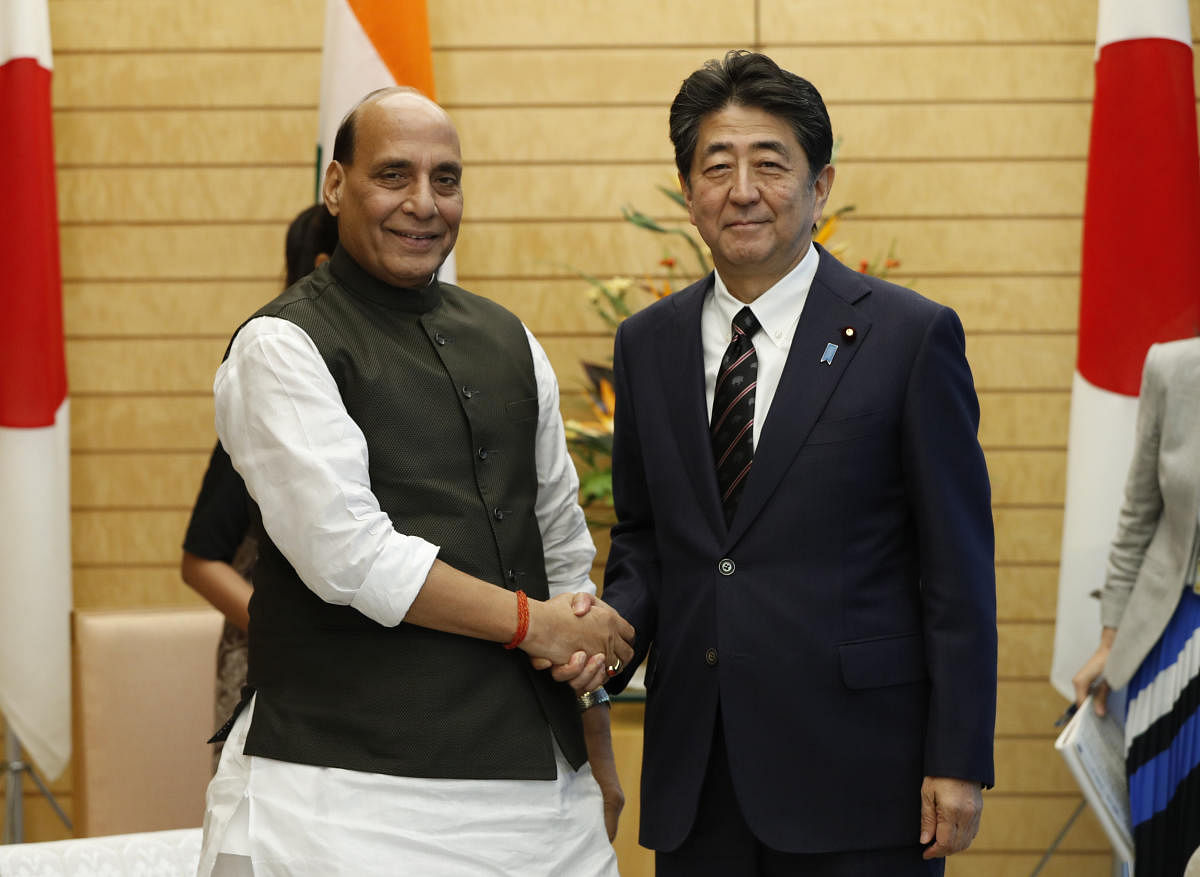
With China rallying with Pakistan on the central government's decision to scrap the special status of Jammu and Kashmir, India continues to exert diplomatic pressure on the communist country taking the case of navigational freedom in the Indo-Pacific zone.
“The ministers recognised that peace and stability of the Indian and Pacific Oceans are crucial for ensuring prosperity of the Indo-Pacific region and the entire world, and had a frank exchange of views on the current security situation in the Indo-Pacific region, including developments on the Korean Peninsula and in the South China Sea,” said a joint statement issued after a bilateral meeting between Defence Minister Rajnath Singh and his Japanese counterpart Takeshi Iwaya in Tokyo.
The Indo-Japan statement comes days after New Delhi raised pitch against Beijing's muscle-flexing in the disputed South China Sea to counter its campaign against the Article 370 decision taken by the Narendra Modi government.
On a five-day visit to Japan and Korea, Singh appraised the Japanese leadership about India's decision on Article 370 as Pakistan goes global on the controversial step.
During his meeting with Prime Minister Shinzo Abe, Singh conveyed to Abe that Jammu and Kashmir was an integral part of India and abrogation of Article 370 benefited the people of the northern state. He maintained that Pakistan had no locus standi in Jammu and Kashmir.
Abe is expected to meet Prime Minister Narendra Modi on the sidelines of the United Nations General Assembly later this month.
In his meeting with the Iwaya, Singh once again discussed abrogation of Article 370 and asserted talks and cross-border terrorism originating from Pakistan couldn't go together.
Last month the UN Security Council discussed the Jammu and Kashmir issue after half a century at the insistence of Pakistan but the Islamic republic failed to receive much support at the end of the closed-door meet. Islamabad has now made a fresh attempt to flag the issue at the UN Human Rights Council meeting in Geneva between September 9-27.
In the joint statement, Singh and Iwaya referred to the October 2018 Vision Statement of Prime Minister Modi and Abe in which the two Asian leaders reiterated their unwavering commitment to working together towards a free and open Indo-Pacific.
India and Japan are set to have the first Foreign and Defence Ministerial Dialogue (2+2) ahead of the Japan-India Annual Summit later this year for advancing cooperation towards peace and prosperity of the Indo-Pacific region.
